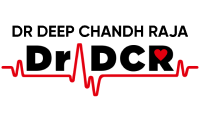Heart Palpitations
Heart palpitations are sensations that your heart is beating too quickly or irregularly. You may feel your heart racing, fluttering, or pounding. Stress, exercise, or certain medications can trigger them. Occasionally, they may arise from rare health issues.
While heart palpitations can be concerning, they are typically not dangerous. However, they can sometimes signal a more serious issue, like an irregular heartbeat (arrhythmia), which may require treatment. For comprehensive care, consider Heart Palpitation Treatment in Chennai with Dr. Deep Chandh Raja.
Symptoms
Heart palpitations can make you feel like your heart is:
- Beating too fast
- Flip-flopping
- Fluttering quickly
- Pounding
- Skipping beats
You might also notice these sensations in your throat or neck, in addition to your chest. Palpitations can happen whether you're active or at rest.
When to See a doctor
If your palpitations happen rarely and only last a few seconds, they typically don’t require medical attention. However, suppose you have a history of heart disease and notice palpitations that are frequent or getting worse. In that case, it’s best to talk to our healthcare provider.
Dr. Deep Chandh Raja can help determine if there’s a serious heart issue. Get emergency help if you experience palpitations along with the following:
- Chest pain or discomfort
- Fainting
- Severe shortness of breath
- Intense dizziness
Causes
The cause of heart palpitations remains unknown. However, some common factors include:
- Intense emotions like stress, anxiety, or panic attacks
- Depression
- Vigorous exercise
- Stimulants, including caffeine, nicotine, cocaine, amphetamines, and certain cold medications with pseudoephedrine
- Fever
- Hormonal changes because of menstruation, pregnancy, or menopause
- Imbalances in thyroid hormone levels
In rare cases, heart palpitations can indicate a serious issue, such as an irregular heartbeat (arrhythmia). Arrhythmias can cause a fast heartbeat, known as tachycardia. They can also lead to a slow heartbeat, called bradycardia. Sometimes, the heartbeat may be irregular in pattern.
Risk Factors
Several factors can increase the risk of heart palpitations, including:
- Stress
- Anxiety disorders or panic attacks
- Pregnancy
- Certain medications with stimulants, like some cold or asthma treatments
- An overactive thyroid (hyperthyroidism)
Other heart problems include irregular heartbeats, changes in heart structure, a history of heart attacks, or past heart surgeries.
Heart Palpitations Diagnosis
Suppose Dr. Deep Chandh Raja suspects that your palpitations might be caused by arrhythmia or another serious condition. In that case, they may recommend the following tests:
- Electrocardiogram (ECG): This common test is non-invasive. It involves placing leads on your chest to record your heartbeat's electrical signals. An ECG can help identify issues with your heart rhythm and structure that may lead to palpitations. You can perform it while you’re at rest or during exercise, which people call a stress ECG.
- Holter Monitoring: This means wearing a small device that records your heart's activity for 24 to 72 hours. During this time, you’ll note any palpitations you experience. Holter monitoring is especially useful for detecting palpitations that might not appear on a standard ECG. Some smartwatches also offer this type of monitoring.
- Event Recording: If your heart rhythms look normal during Holter monitoring, your doctor may suggest an event recorder. This is true if your palpitations happen less than once a week. People wear this portable ECG device for days or months. It records your heart’s activity when you press a button during symptoms.
- Echocardiogram: This test uses sound waves to make pictures of your heart. It helps show any problems with blood flow or the heart's structure.
Heart Palpitations Treatment and Management
The treatment for heart palpitations depends on their cause and severity. Options include:
- Lifestyle Changes: Reducing caffeine, nicotine, and alcohol, managing stress, and exercising regularly can help reduce palpitations.
- Medications: If arrhythmia or another condition causes palpitations, doctors may prescribe medications like beta-blockers or antiarrhythmics.
- Stress Management: Techniques such as relaxation exercises, mindfulness, and cognitive behavioural therapy can help control stress-related palpitations.
- Medical Procedures: Sometimes, doctors may need to use procedures like cardioversion, ablation, or a pacemaker. Doctors use these if the palpitations come from a heart condition.
- Treating Underlying Conditions: Addressing medical issues such as thyroid disorders, anaemia, or electrolyte imbalances can help resolve palpitations.
- Monitoring and Evaluation: Continuous monitoring with devices like Holter monitors or event recorders can assist in diagnosing the cause and guiding treatment.
Always consult a healthcare provider, like Dr. Deep Chandh Raja, for an accurate diagnosis and a personalized treatment plan, including Heart Palpitation Treatment in Chennai.
Complications
Palpitations linked to heart conditions can lead to several complications, including:
- Fainting: Rapid heartbeats can cause blood pressure to drop, leading to fainting. This is more common in people with heart issues like congenital heart disease or valve problems.
- Cardiac Arrest: Sometimes, serious heart rhythm issues can cause palpitations. These problems can lead to the heart-stopping.
- Stroke: If palpitations come from atrial fibrillation, the heart's upper chambers may shake instead of beating normally. This can lead to blood pooling and clot formation. If a clot travels to the brain, it can cause a stroke.
- Heart Failure: Certain arrhythmias can weaken the heart's pumping ability. Managing the rate of an arrhythmia may improve heart function in those with heart failure.
For effective solutions, consider Heart Palpitation Treatment in Chennai with Dr. Deep Chandh Raja.





.jpg)